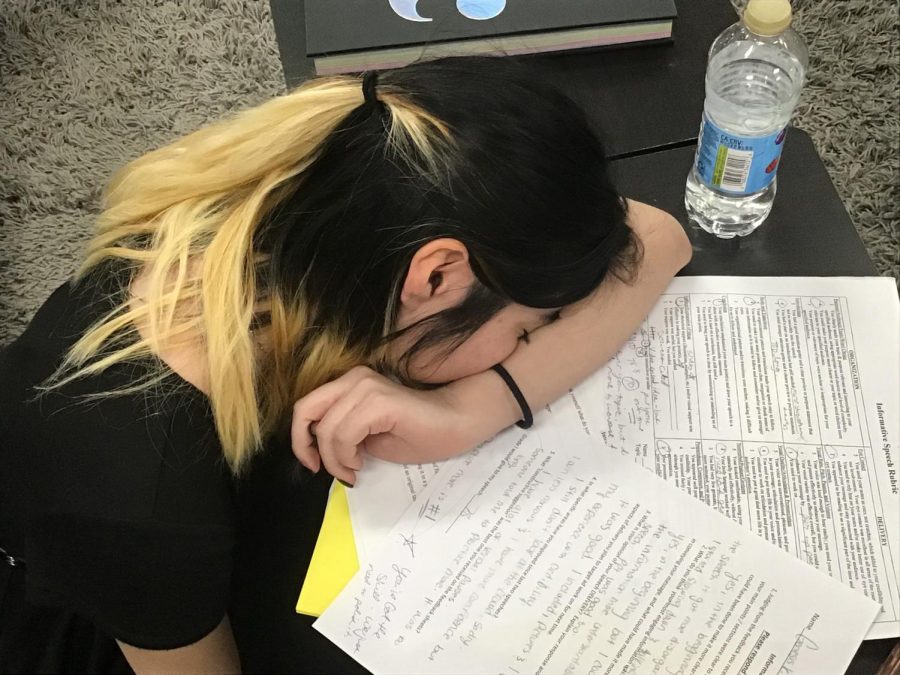Daylight Savings inconveniences many
Daylight Savings (DST) is defined as the systematic practice of setting your clock turning ahead the clock. With that, comes a huge amount of conflicts that leave many restless with one hour of sleep missing from their circadian rhythm. Mrs. Julie Saunders said, “ I am much older, losing an hour of sleep once a year is quite inconvenient. Now that my clocks and phones change time automatically, I have little worry that I will ever miss a time change due to daylight savings time.”
Imagine having to set your clock one hour from standard time or accidentally forgetting to do so. This is what’s known as, Daylight savings, the day you lose an hour of sleep on Sunday.
Daylight Savings (DST) is defined as the systematic practice of setting your clock turning ahead the clock and starts on the second Sunday in March, at 2am the clock jumps forward an hour.
Mrs. Rita Sponenburg gives her thoughts on losing an hour of sleep.
She said, “Well, ordinarily the time changes do not bother me; I’ve hardly been noticing it in recent years. But this year I’ve noticed that I am very tired in the morning when my alarm goes off! Looking forward to the weekend to catch up. Oh, I’ll adjust just fine! Losing an hour in the spring is compensated by the fact that it’s spring, summer’s coming, and it stays light longer.”
Mrs. Julie Saunders says, “I grew up during the 1960s and 1970s. Moving the clocks forward meant that I would lose an hour of sleep on one night of the year. To be honest, I didn’t really notice that anything changed other than having to get to where I needed to be an hour earlier. I enjoyed being outside riding my bike and doing things with my friends; so, the extra hour of sunshine was definitely a good thing.”
Daylight savings signals toward the beginning of warm weather and the spring season. With the spring season upcoming, allergies arise which irritates people leaving them with itchy, watery eyes and runny noses. In the fall and winter seasons, the clocks turn back as it gets colder and darker earlier, hence why we are compensated by the fact that we get an extra hour of sleep.
Freshman Tabitha Raunch says, “ I think I will adjust just fine, I’m just going to be annoyed by my allergies. I was definitely affected by the fact that I can’t really go to bed anymore, it takes me a while to fall asleep. I think losing an hour of sleep sucks, but it’s nice to have more hours of sun during the day!”



